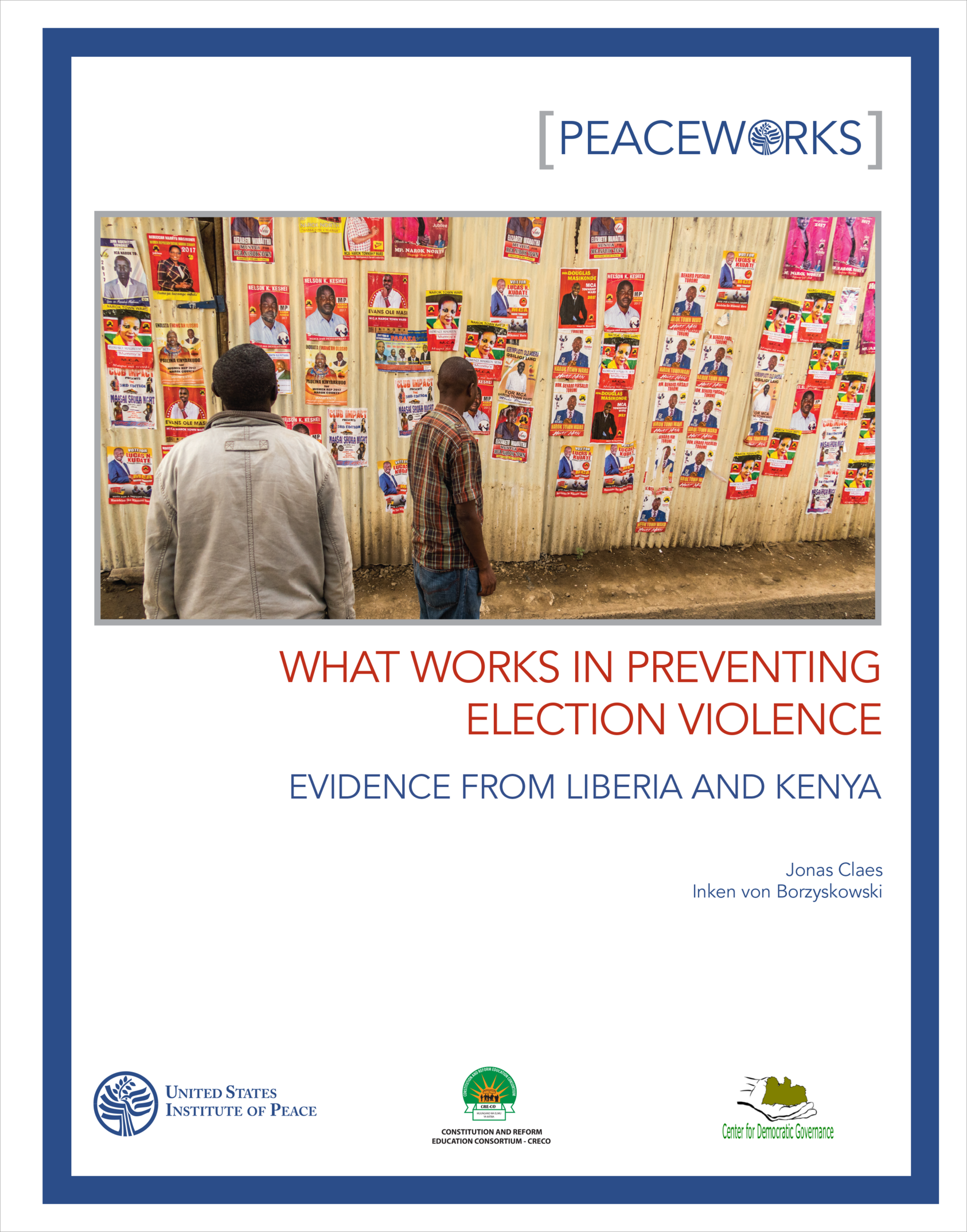Evidence from Liberia and Kenya
Drawing on extensive field research in Kenya and Liberia around the 2017 elections in those countries, this report uses local survey data to evaluate the effectiveness of seven prevention measures thought to reduce the risk of election violence. Its recommendations, directed primarily to the international community but offering utility for regional and national agencies, offer ways to strengthen existing practices or address shortcomings and gaps in programming and enhance their ability to shape environments conducive to peaceful elections.
Summary
- A growing number of peacebuilding and conflict prevention strategies are being used to mitigate the risk of election violence. Youth programs, election observation, police training, and civic education are just some of the approaches. Little is known, however, about which programs work and which do not for preventing election violence.
- A strong performance by police and election commissioners is key to reducing election violence. At the same time, poorly performing election and security institutions are often responsible for much of the violence.
- The Liberia National Police, the Supreme Court, and the National Election Commission in Liberia advanced trust and confidence in the election process and helped mitigate tension at critical moments during the 2017 elections. Liberian security personnel played a positive role during the campaign period, and their presence was mostly discrete, nonintrusive, and professional.
- In Kenya, police units were generally well prepared for the 2017 elections, but responded to demonstrations violently, repressively, and abusively. The irregularities that occurred with the transmission of the votes and other technical processes triggered incendiary statements by opposition leaders and provoked demonstrations that were poorly handled by security forces.
- We find no systematic evidence that peace messaging and voter consultation made a difference in the 2017 elections in Kenya or Liberia. Peace messaging often struggles to reach the members of society most likely to perpetrate violence, while political parties fail to connect meaningfully with voters.
- Youth programming and civic and voter education seemed to make a difference in Liberia but not in Kenya. Election monitoring seemed capable of realizing some of its promise in changing certain attitudes, but was not associated with less election violence in either Liberia or Kenya.
- More effective prevention is possible with timely and integrated risk assessments and inclusive, targeted, and locally led programming.
About the Report
Based on extensive field research around the 2017 elections in Kenya and Liberia, this report uses original survey data from more than two thousand local respondents to evaluate the effectiveness of prevention measures and to help the peacebuilding community in shaping environments conducive to peaceful elections. It is supported by the United States Institute of Peace.
About the Authors
Jonas Claes is a senior program officer at USIP, where he conducts research and analysis on the prevention of election violence and mass atrocities. He is the editor of Electing Peace (USIP Press, 2016) and has engaged in election observation, research, and training in Kenya, Liberia, Mexico, Bangladesh, Suriname, and Honduras. Inken von Borzyskowski is an assistant professor of political science at Florida State University. Her book The Credibility Challenge: How Democracy Aid Influences Election Violence will be published by Cornell University Press in 2019. The authors are grateful to the Center for Democratic Governance in Liberia and the Constitution and Reform Education Consortium in Kenya for their collaboration and professional field research. They also thank Emmanuel Davalillo Hidalgo and Richard Saunders for exceptional research assistance.
